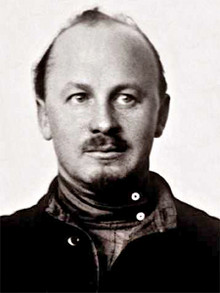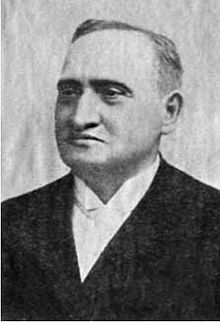1.4 — Can We Plan an Economy?
ECON 317 • Economic Development • Fall 2021
Ryan Safner
Assistant Professor of Economics
safner@hood.edu
ryansafner/devF21
devF21.classes.ryansafner.com
Political Economy & Making Fair Comparisons
Two Fundamental Problems of Political Economy
- All societies face two fundamental problems, which institutions emerge (or are created) to address:
The Knowledge Problem: How to coordinate the tacit, fragmented knowledge of opportunities and conditions dispersed across millions of individuals (and accessible to none in total) in order to maximize the ability of individuals to achieve their goals
Two Fundamental Problems of Political Economy
- All societies face two fundamental problems, which institutions emerge (or are created) to address:
The Knowledge Problem: How to coordinate the tacit, fragmented knowledge of opportunities and conditions dispersed across millions of individuals (and accessible to none in total) in order to maximize the ability of individuals to achieve their goals
The Incentives Problem: How to structure incentives that individuals face in a way that maximizes cooperative behavior (voluntary exchange and association) and minimizes non-cooperative behavior (cheating, opportunism, exploitation, violence, rent-seeking)
Making Fair Comparisons: Robust Political Economy I
- No system is perfect
We need to find arrangements that are robust to knowledge & incentive problems
Easy case: perfect information benevolence
Hard case: uncertainty and selfish behavior
Treat people as they are: sometimes good, bad, smart, stupid, opportunistic, altruistic depending on the institutions

Making Fair Comparisons: Robust Political Economy II
No society has ever had "pure" capitalism/socialism/etc
Not fair to refute the theory of an ideal system with a flawed system in practice
History not an experimental science
Must contest systems theoretically - which is most internally-consistent?
All "pure" systems can work in utopia with heroic assumptions (omniscience, omnipotence, benevolence)

Making Fair Comparisons: Robust Political Economy III
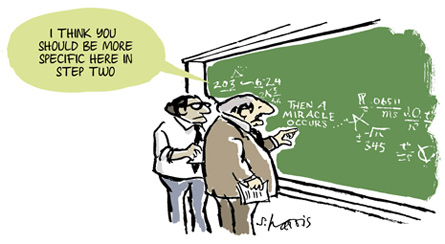
Making Fair Comparisons: Robust Political Economy IV
Economists often recommend optimal policies that could be installed by a benevolent despot
- A dispassionate ruler with total control, perfect information, and right incentives to implement optimal policy
- A "1st-best solution"
In reality, 1st-best policies are distorted by the knowledge problem, the incentives problem, and politics
- Real world: 2nd-to-nth-best outcomes
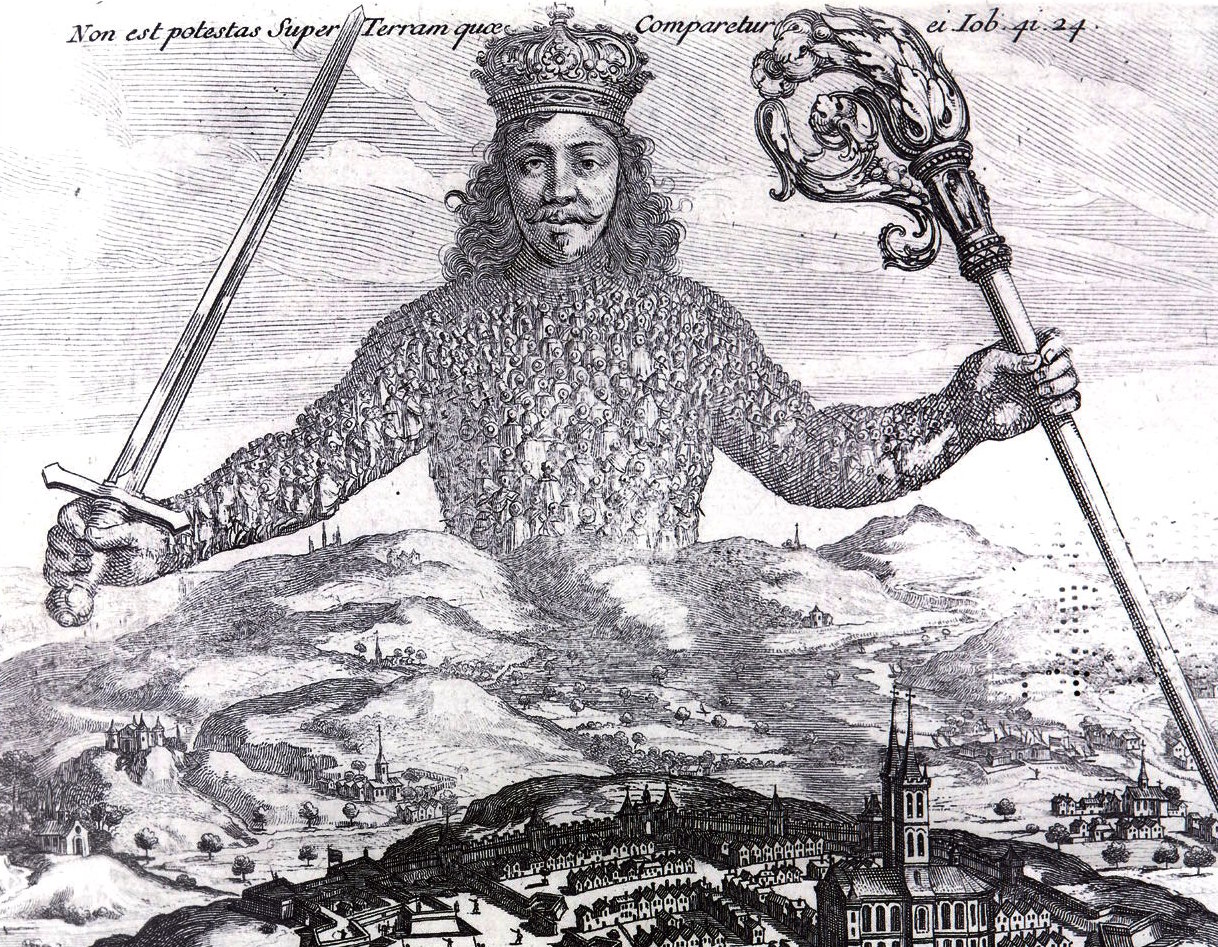
Making Fair Comparisons: Nirvana Fallacy

Harold Demsetz
1930-2019
The view that now pervades much public policy economics implicitly presents the relevant choice as between an ideal norm and an existing 'imperfect' institutional arrangement. This nirvana approach differs considerably from a comparative institution approach in which the relevant choice is between alternative real institutional arrangements, (p.1).
Demsetz, Harold, 1969, "Information and Efficiency: Another Viewpoint," Journal of Law and Economics 12(1): 1-22
Comparative Analysis
Compare imperfections of feasible and relevant alternative systems
- Don't compare problems of an imperfect system with some ideal system!
Economics: think on the margin!
- One system's "failure" does not imply another's "success"!
- the real world requires tradeoffs
- "economics puts parameters on people's utopias"
- "compared to what?"

Two Trends in "Economic" Thinking
Two Trends in "Economic" Thinking

Understanding the spontaneous order of society
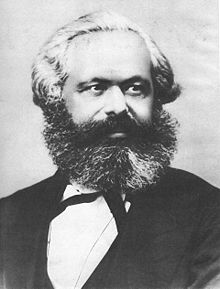
A tool for social control
Economics as Understanding Spontaneous Order I
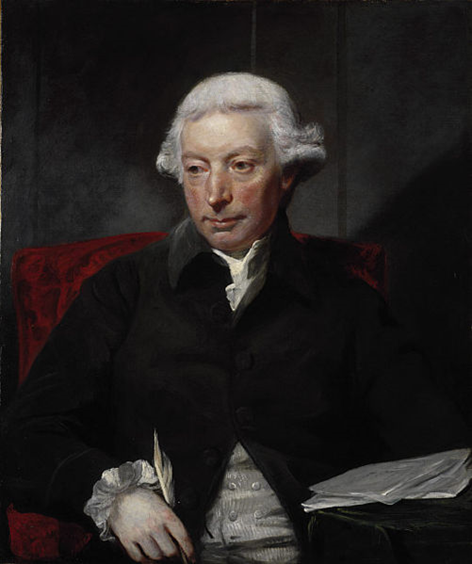
Adam Ferguson
1723-1716
"Every step and every movement of the multitude, even in what are termed enlightened ages, are made with equal blindness to the future; and nations stumble upon establishments, which are indeed the result of human action, but not the execution of any human design," (Book III, Chapter 1).
Ferguson, Adam, 1767, An Essay on the History of Civil Society
Economics as Understanding Spontaneous Order II

Adam Smith
1723-1790
"The man of system...is apt to be very wise in his own conceit; and is often so enamoured with the supposed beauty of his own ideal plan of government, that he cannot suffer the smallest deviation from any part of it...He seems to imagine that he can arrange the different members of a great society with as much ease as the hand arranges the different pieces upon a chess-board. He does not consider that...in the great chess-board of human society, every single piece has a principle of motion of its own, altogether different from that which the legislature might chuse to impress upon it...If they are opposite or different, the game will go on miserably, and the society must be at all times in the highest degree of disorder," (Book IV, Chapter II).
Economics as Understanding Spontaneous Order III
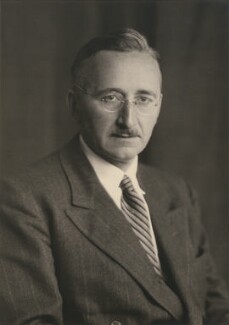
F. A. Hayek
1899-1992
Economics Nobel 1974
"The most dangerous stage in the growth of civilization may well be that in which man...refuses to accept or to submit to anything which he does not rationally understand. The rationalist whose reason is not sufficient to teach him those limitations of the powers of conscious reason, and who despises all the institutions and customs which have not been consciously designed, would thus become the destroyer of the civilization built upon them...Common acceptance of formal rules is indeed the only alternative to direction by a single will man has yet discovered," (p.162).
Hayek, F. A., 1980, The Counterrevolution of Science: Studies in the Abuse of Reason
Economics as Understanding Spontaneous Order IV

F. A. Hayek
1899-1992
Economics Nobel 1974
"There are two ways of looking at the pattern of human activities which lead to very different conclusions concerning both its explanation and the possibilities of deliberately altering it. The first one is based on conceptions which are demonstrably false, yet are so pleasing to human vanity that they have gained great influence and are constantly employed even by people who know that they rest on a fiction...The [second]...leads in some respects to conclusions so unwelcome that few are willing to follow through to the end."
"The first gives us a sense of unlimited power to realize our wishes, while the second leads to the insight that there are limitations to what we can deliberately bring about, and to the recognition that some of our present hopes are delusions. Yet the effect of allowing ourselves to be deluded by the first view has always been that man has actually limited the scope of what he can achieve. For it has always been the recognition of the limits of the possible which has enabled man to make full use of his powers..." (pp.19-20)
"The curious task of economics is to demonstrate to men how little they really know about what they imagine they can design." (p.76)
Hayek, F. A., 1988, The Fatal Conceit
Economics as Understanding Spontaneous Order V

F. A. Hayek
1899-1992
Economics Nobel 1974
"To early thinkers the existence of an order of human activities transcending the vision of an ordering mind seemed impossible," (p. 11).
"I call 'the fatal conceit' the idea that the ability to acquire skills [to direct society] stems from reason. For it is the other way around: our reason is as much the result of an evolutionary selection process as is our morality...the evolution of the extended order...is ...beyond instinct and often opposed to it, and which is...incapable of being created or designed by reason," (p. 21).
"[Too many eminent scientists] call on human reason...to seize the reins and control future [social] development. Such wishful thinking is encouraged by what I have elsewhere called 'constructivist rationalism,'" (p.22).
"[The evolution of the extended order] is a process of continuous adaptation to unforeseeable events, to contingent circumstances which could not have been forecast. The is another reason why evolutionary theory can never put us in the position of rationally predicting and controlling future evolution," (p.25)
Hayek, F. A., 1988, The Fatal Conceit
Economics as Understanding Spontaneous Order VI

F. A. Hayek
1899-1992
Economics Nobel 1974
"Moreover, the structures of the extended order are made up not only of individuals but also of many, often overlapping, [groups] within which old instinctual responses, such as solidarity and altruism, continue to retain some importance by assisting voluntary collaboration...Part of our present difficulty is that we must constantly adjust our lives, our thoughts and our emotions, in order to live simultaneously within different kinds of orders according to different rules. If we were to apply the unmodified, uncurbed, rules of the micro-cosmos (i.e., of the small band or troop, or of, say, our families) to the macro-cosmos (our wider civilisation), as our instincts and sentimental yearnings often make us wish to do, we would destroy it. Yet if we were always to apply the rules of the extended order to our more intimate groupings, we would crush them. So we must learn to live in two sorts of worlds at once," (p.18)
Hayek, F. A., 1988, The Fatal Conceit
Economics as a Tool for Social Control I

Plato
c.428-c.348 B.C.
"[T]he law is not concerned with making any one class in this city do outstandingly well, but is contriving to produce this condition in the city as a whole, harmonizing the citizens together through persuasion or compulsion, and making them share with each other the benefit they can confer on the community. It produces such men in the city, not in order to allow them to turn in whatever direction each one wants, but to make use of them to bind the city together," (Book VII)
- Hierarchical society where all are assigned roles via the "noble lie"
- "Guardians" and philosopher-kings plan society under common ownership of property, childrearing, etc.
- Commerce is beneath political, philosophic, civic, and artistic life
Plato, The Republic
Economics as a Tool for Social Control II
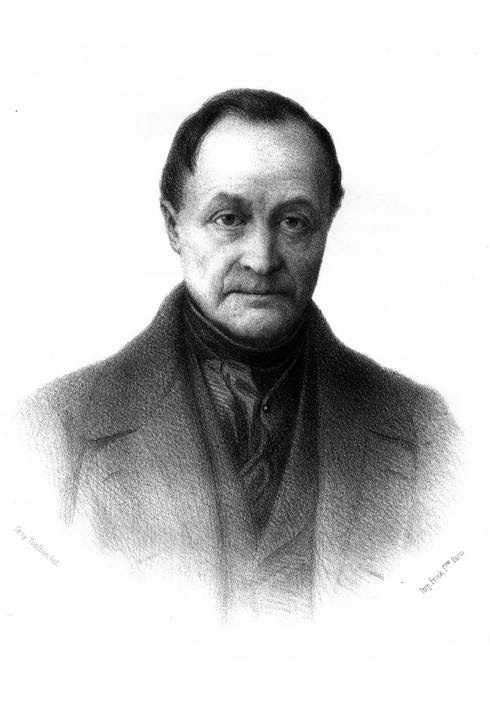
August Comte
1798-1857
Comte is often considered the father of sociology and main exponent of
Positivism: knowledge is derived (only) from quantifiable empirical evidence
- NOT from pure reason, revelation, or intuition
Society, like the physical world, operates under discoverable empirical and experimental laws
"The law is this: that each of our leading conceptions [of both mind and society] – each branch of our knowledge – passes successively through three different theoretical conditions: the Theological, or fictitious; the Metaphysical, or abstract; and the Scientific, or positive."
Comte, Auguste, 1830-1842, Course of Positive Philosophy
Economics as a Tool for Social Control III

August Comte
1798-1857
"Scientism": understanding and mastering these laws to rationally order a society
"Logical positivism" (1920s-1960s): only empirically-verifiable statements are knowledge
- anything not empirically-verifiable is unscientific and meaningless
Positivism in economics1
1 Friedman, Milton, 1953, "The Methodology of Positive Economics," Essays in Positive Economics
Some Context: The Upheaval of the Ancien Regime
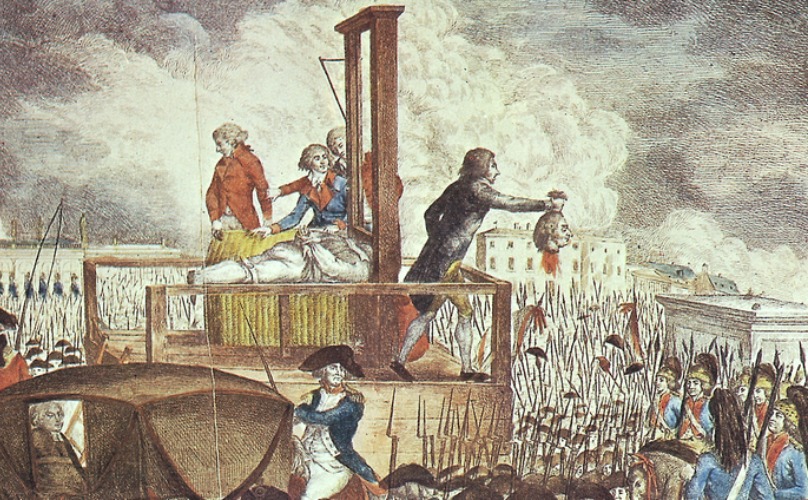
French Revolution (1789-1799), revolutionaries overthrow the Ancien regime
New republican government aims to rebuild all social institutions from scratch via positivist science
L'Encyclopedie: compendium of all scientific knowledge
Some Context: Utopian Socialism

From Thomas More's Utopia (1516)
Utopian Socialists/anarchists: Thomas More, Henri de Saint-Simon, Charles Fourier, Robert Owen, Pierre-Joseph Proudhon, Pyotr Kropotkin
Literature of utopian societies of equality and wealth for all, founded on scientific methods
Believed not in revolution, or class conflict, but peaceful moral persuasion
Some Context: Progressive Era (c.1890-1920)
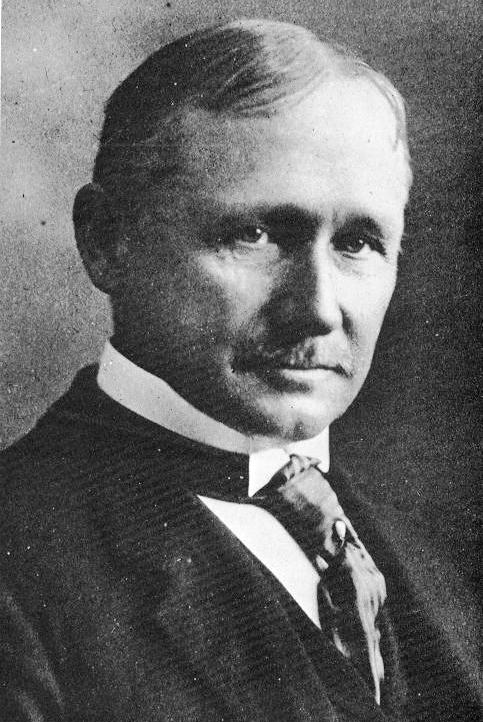
Frederick Winslow Taylor
1856-1915
Progressive Era (c.1890-1920), rise of Big Business
Taylorism and Efficiency Movement: industrial efficiency by methods of scientific management
- Apply scientific tools to study optimal production techniques, standardization, eliminate waste
Workers as cogs in a well-oiled machine
Some Context: Progressive Era (c.1890-1920)
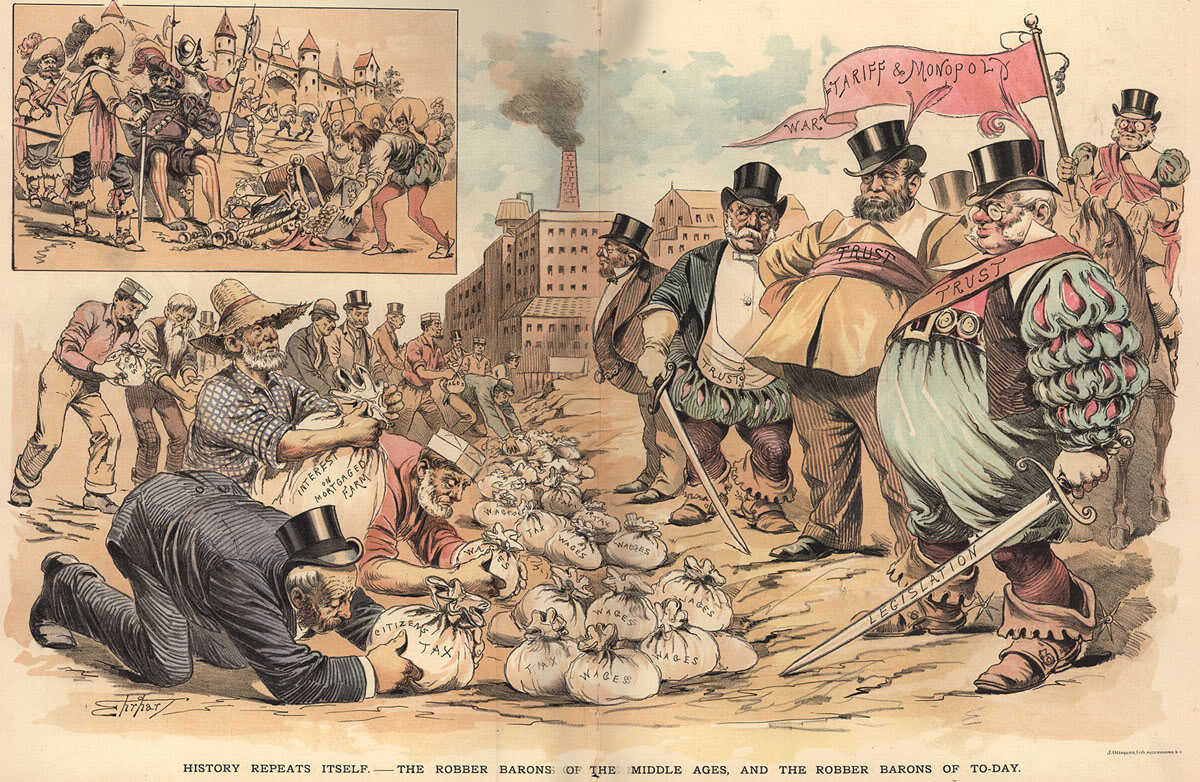
Some Context: Progressive Era (c.1890-1920)

Political activism aimed at rationalizing society & economy
Activist government fine-tuning markets: antitrust, minimum wage, externalities
Science of public administration: substitution of democracy & markets with rule by technocratic experts insulated from politics & public opinion
Some Context: Progressive Era (c.1890-1920)

- Economic legislation to "rationalize" and regulate market economy
- Antitrust laws
- Labor laws: unions, child labor laws, minimum wages, health and safety
- Monetary changes: Federal Reserve, creation of income tax (13th Amendment)
- Regulatory & administrative agencies: Federal Trade Commission,
Some Context: Progressive Era (c.1890-1920)

- Social legislation to enhance democracy:
- Women's suffrage (19th Amendment)
- direct election of Senators (17th Amendment)
- Primaries in party politics (to end political machines)
Some Context: Progressive Era (c.1890-1920)

- But at same time, focus on scientific expert control of society
- Eugenics, scientific racism, forced sterilization of "imbeciles"
- Prohibition of alcohol (18th Amendment)
Some Context: Progressive Era (c.1890-1920)

Woodrow Wilson
1856-1924
"The field of [public] administration is a field of business. [It] lies outside the proper sphere of politics...Although politics sets the tasks for administration, it should not be suffered to manipulate its offices"
"[P]ublic attention must be easily directed, in each case of good or bad administration, to just the man deserving of praise or blame. There is no danger in power, if only it be not irresponsible. If it be divided, dealt out in share to many, it is obscured."
Wilson, Woodrow, 1887, "The Study of Administration," Political Science Quarterly
Some Context: Progressive Era (c.1890-1920)
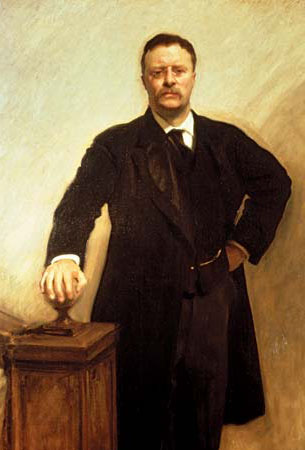
Theodore Roosevelt
1858-1919
"My view was that every executive officer, and above all every executive officer in high position, was a steward of the people bound actively and affirmatively to do all he could for the people, and not to content himself with the negative merit of keeping his talents undamaged in a napkin. I declined to adopt the view that what was imperatively necessary for the Nation could not be done by the President unless he could find some specific authorization to do it. My belief was that it was not only his right but his duty to do anything that the needs of the Nation demanded unless such action was forbidden by the Constitution or by the laws. I did not usurp power, but I did greatly broaden the use of executive power."
Wilson, Woodrow, 1887, "The Study of Administration," Political Science Quarterly
Marxian - Socialism
Marxian -Socialism: Motivating Ideals I
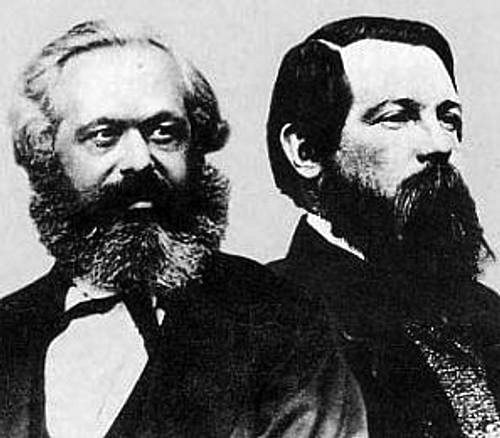
Karl Marx (1818-1883)
Friedrich Engels (1820-1895)
"The history of all hitherto existing society is the history of class struggles."
"In the earlier epochs of history, we find almost everywhere a complicated arrangement of society into various orders, a manifold gradation of social rank. In ancient Rome we have patricians, knights, plebeians, slaves; in the Middle Ages, feudal lords, vassals, guild-masters, journeymen, apprentices, serfs; in almost all of these classes, again, subordinate gradations."
"Our epoch, the epoch of the bourgeoisie, possesses, however, this distinct feature: it has simplified class antagonisms. Society as a whole is more and more splitting up into two great hostile camps, into two great classes directly facing each other — Bourgeoisie and Proletariat," (§1 Bourgeois and Proletarians)
Marx, Karl and Friedrich Engels, 1848, Manifesto of the Communist Party
Marxian -Socialism: Motivating Ideals II

Karl Marx (1818-1883)
Friedrich Engels (1820-1895)
"In the national struggles of the proletarians of the different countries, [the Communists] point out and bring to the front the common interests of the entire proletariat, independently of all nationality. [In] the various stages of development which the struggle of the working class against the bourgeoisie has to pass through, they always and everywhere represent the interests of the movement as a whole."
"The immediate aim of the Communists is the same as that of all other proletarian parties: formation of the proletariat into a class, overthrow of the bourgeois supremacy, conquest of political power by the proletariat."
"In this sense, the theory of the Communists may be summed up in the single sentence: Abolition of private property, (§2 Proletarians and Communists)
Marx, Karl and Friedrich Engels, 1848, Manifesto of the Communist Party
Marxian -Socialism: Motivating Ideals III

Karl Marx (1818-1883)
Friedrich Engels (1820-1895)
"The Socialist and Communist systems, properly so called, those of Saint-Simon, Fourier, Owen, and others, spring into existence in the early undeveloped period, described above, of the struggle between proletariat and bourgeoisie."
"The undeveloped state of the class struggle, as well as their own surroundings, causes Socialists of this kind to consider themselves far superior to all class antagonisms. They want to improve the condition of every member of society, even that of the most favoured. Hence, they habitually appeal to society at large, without the distinction of class; nay, by preference, to the ruling class."
"Hence, they reject all political, and especially all revolutionary action; they wish to attain their ends by peaceful means, necessarily doomed to failure, and by the force of example, to pave the way for the new social Gospel."
"Such fantastic pictures of future society, painted at a time when the proletariat is still in a very undeveloped state and has but a fantastic conception of its own position...are of a purely Utopian character," (§3 Socialist and Communist Literature)
Marx, Karl and Friedrich Engels, 1848, Manifesto of the Communist Party
Marxian -Socialism: Methodology

Georg Wilhelm Friedrich Hegel
1770-1831
- Marxian analysis is done through Hegelian dialectic
- A thesis
- An antithesis
- A synthesis from contestation of thesis vs. antithesis
- Cycle repeats
Marxian -Socialism: Methodology II
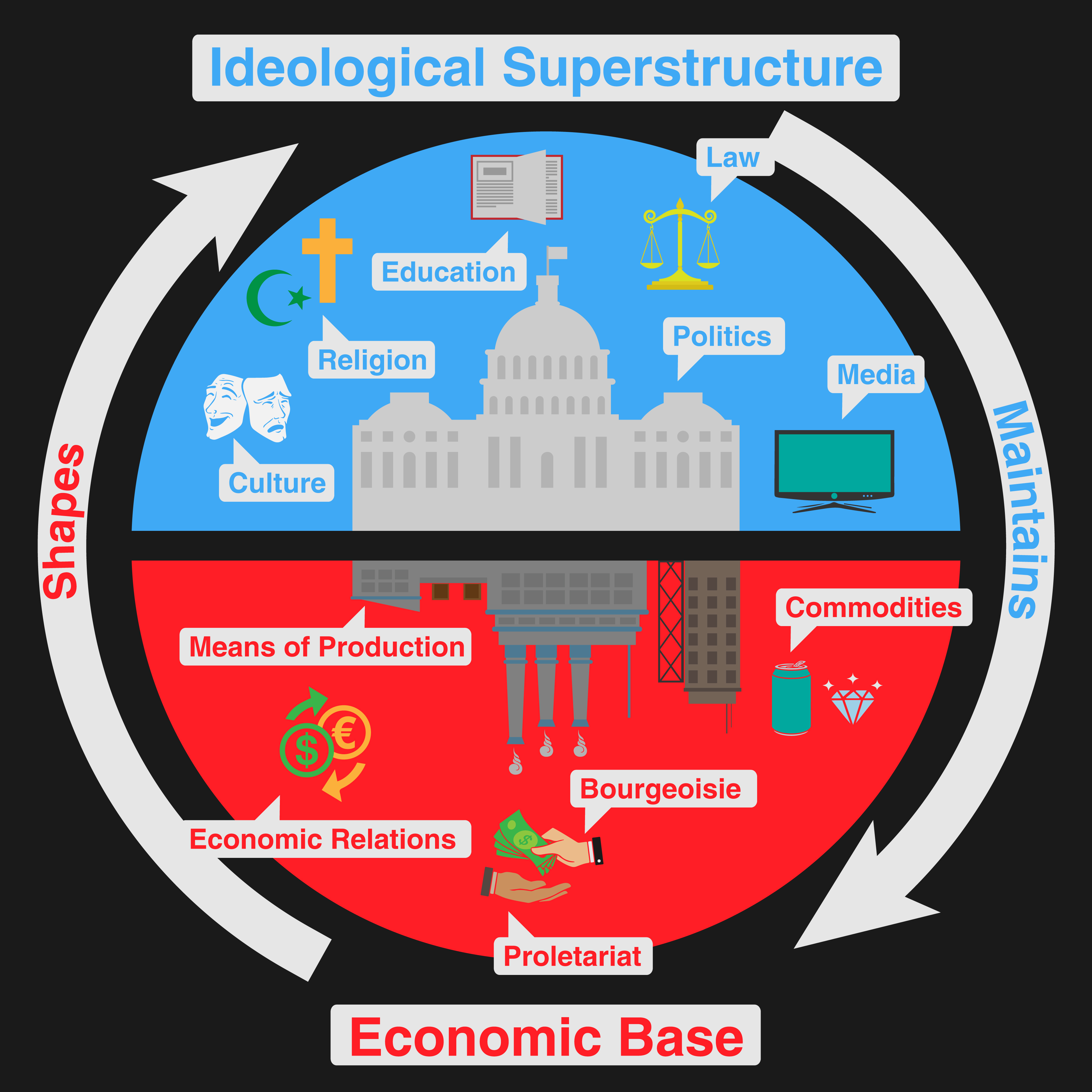
Marx's materialist dialectic
History of the world is pre-determined by produce of material (economic) forces
- Base: determined by what social class controls the modes of production (MOP)
- Creates the superstructure of institutions (ideas, culture, religion, politics, the State) to reinforce class relations
- A new class overthrows the ruling class, takes over modes of production
- This collapses the old superstructure, creates a new base and new superstructure
Marxian -Socialism: Methodology III

- Primitive communism: hunter-gatherers with no social classes
- Ancient MOP: Citizens > Slaves
- Feudal MOP: Nobility > Serfs & Bourgeoisie
- Capitalist MOP: Bourgeoisie > Proletariat
- Communist MOP: Proletariat ushers in classless, stateless, society
Capitalism and Socialism I
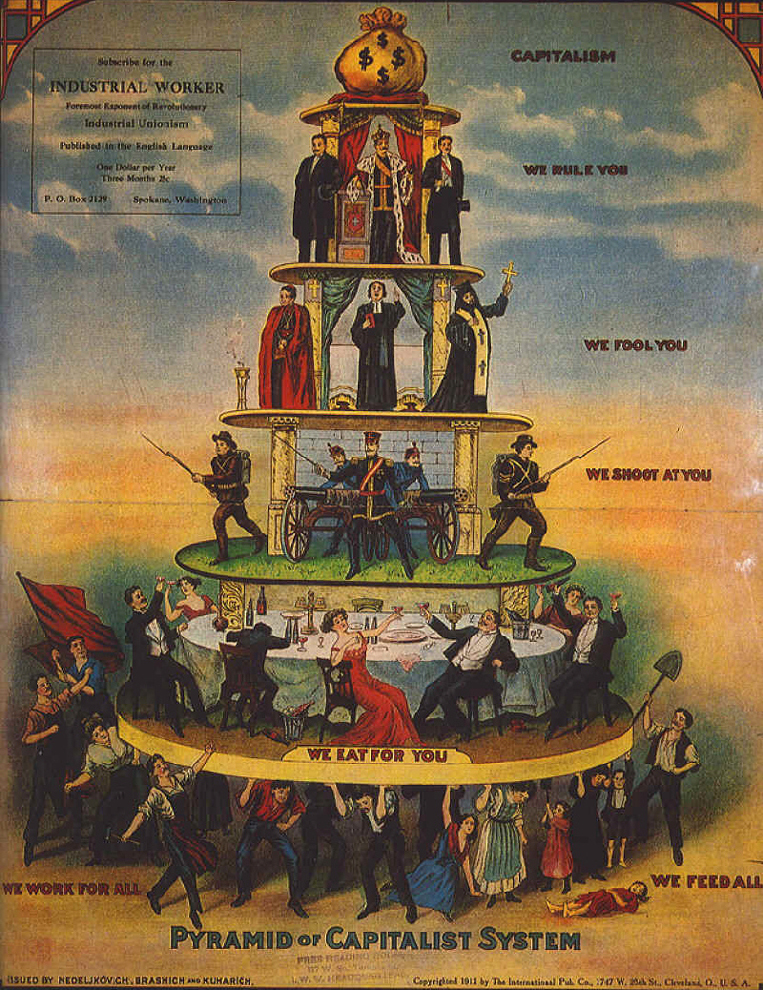
Capitalism and Socialism II
Capitalism (to Marxists) is unplanned "anarchy of production," ex ante social disharmony
Socialism will rationalize economy by centrally planning towards a harmonized pre-coordinated plan to achieve greater "advanced material production" than capitalism

Capitalism and Socialism III

Karl Marx
(1818-1883)
The life-process of society, which is based on the process of material production, does not strip off its mystical veil until it is treated as production by freely associated men, and is consciously regulated by them in accordance with a settled plan, (p.92),1
"The positive transcendence of private property as the appropriation of human life, is therefore the positive transcendence of all estrangement - that is to say, the return of man from religion, family, state, etc., to his human, i.e. social existence," (p.97).2
1 Marx, Karl, 1906, Das Kapital: A Critique of Political Economy
2 Marx, Karl, 1884, Economic and Philosophical Manuscripts of 1884
Capitalism and Socialism III
Marxist dialectic: socialism = negation of capitalism and emerges from its problems:
Alienates workers from their labor by capitalists who profit from "surplus value"
Proceeds to monopoly through accumulation of capital amidst a declining rate of profit
Crisis of overproduction and a "reserve army of the unemployed" (business cycles)
- Drives capitalist nations to find new markets to avoid depression: imperialism, exploitation, and colonization of periphery countries1

The Allure of Planning
Socialism: How to Achieve? I

Karl Marx (1818-1883)
Friedrich Engels (1820-1895)
- Abolition of property in land and application of all rents to public purposes
- A heavy progressive or graduated income tax
- Abolition of all rights of inheritance
- Confiscation of the property of all emigrants and rebels
- Centralisation of credit in the hands of the state, by means of a national bank with State capital and an exclusive monopoly
- Centralisation of the means of communication and transport in the hands of the State
- Extension of factories and instruments of production owned by the State; the bringing into cultivation of waste-lands, and the improvement of the soil generally in accordance with a common plan
- Equal liability of all to work. Establishment of industrial armies, especially for agriculture
- Combination of agriculture with manufacturing industries; gradual abolition of the distinction between town and country by a more equable distribution of the populace over the country
- Free education for all children in public schools. Abolition of children's factory labour in its present form. Combination of education with industrial production, etc. etc.
Marx, Karl and Friedrich Engels, 1848, Manifesto of the Communist Party
Socialism: How to Achieve? II

Karl Marx
(1818-1883)
"My own contribution was (1) to show that the existence of classes is merely bound up with certain historical phases in the development of production; (2) that the class struggle necessarily leads to the dictatorship of the proletariat; [and] (3) that this dictatorship, itself, constitutes no more than a transition to the abolition of all classes and to a classless society," (pp.62-65).
"Letter from Marx to Joseph Weydemeyer" March 5, 1852 in Karl Marx & Frederick Engels, 1983, Collected Works Vol. 39, International Publishers: New York
Socialism: How to Achieve? III
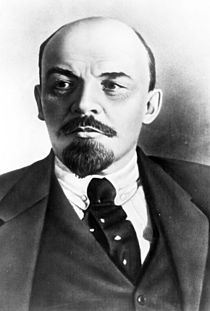
Vladimir Lenin
(1870-1924)
"The dictatorship of the proletariat, i.e. the organization of the vanguard of the oppressed as the ruling class for the purpose of suppressing the oppressors, cannot result merely in an expansion of democracy. Simultaneously, with an immense expansion of democracy, which, for the first time, becomes democracy for the poor, democracy for the people, and not democracy for the money-bags, the dictatorship of the proletariat imposes a series of restrictions on the freedom of the oppressors, the exploiters, the capitalists. We must suppress them in order to free humanity from wage slavery,their resistance must be crushed by force; it is clear that there is no freedom and no democracy where there is suppression and where there is violence," (pp.62-65).
Lenin, Vladimir, 1917, The State and Revolution
Socialism: How to Achieve? IV

Vladimir Lenin
(1870-1924)
"When a big enterprise assumes gigantic proportions, and, on the basis of an exact computation of mass data, organizes according to plan the supply of primary raw materials to the extend of two-thirds, or three-fourths, of all that is necessary for tens of millions of people; when the raw materials are transported in a systematic and organized manner to the most suitable places of production, sometimes situated hundreds or thousands of miles from each other; when a single centre directs all the consecutive stages of processing the material right up to the manufacture of numerous varieties of finished articles; when these products are distributed according to a single plan among tens and hundreds of millions of consumers...then it becomes evident that we have socialisation of production..." (pp.302-303).
Socialism: How to Achieve? V

Vladimir Lenin
(1870-1924)
"[We must have] the strictest and country-wide accounting and control of production and distribution of goods [under] the nodal points of public accounting under socialism [to organize] the population into a single cooperative society under proletariat management.
"It must be said that large-scale machine industry --- which is precisely the material source, the productive source, the foundation of socialism --- calls for absolute and strict unity of will...The technical, economic and historical necessity of this is obvious and all those who have thought about socialism have always regarded it as one of the conditions of socialism...How can such strict unity of will be guaranteed? By thousands subordinating their will to the will of one," ("The Immediate Tasks of the Soviet Government", pp.268-269)
Lenin, Vladimir, 1977, Collected Works, Vol. 27
Socialism: How to Achieve? VI
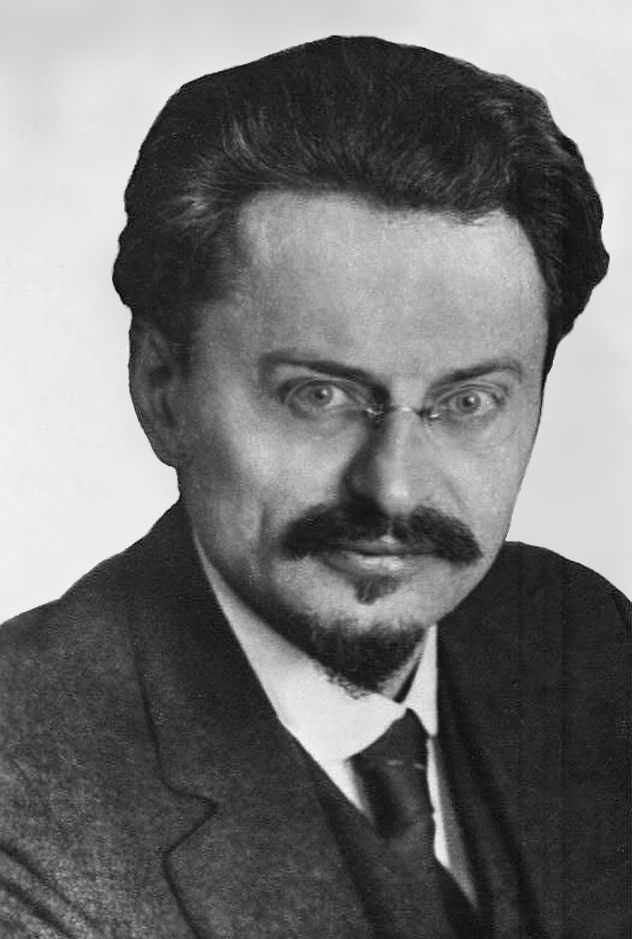
Leon Trotksy
(1879-1940)
"Socialist organization of production begins with the liquidation of the market...Production shall be geared to society's needs by means of a unified economic plan."
quoted in Smolinsky, Leon, 1967, "Planning without Theory 1917--1967," Survey 64: 113
Socialism: How to Achieve? VII
Nikolai Bukharin
(1888-1938)
"No longer will one enterprise compete with another, the factories, workshops, and other productive institutions will all be subdivisions, as it were, of one vast people's workshop, which will embrace the entire national economy of production. It is obvious that so comprehensive an organization presupposes a general plan of production...it is obvious that everything must be precisely calculated. We must know in advance how much labour to assign to the various branches of industry; what products are required and how much of each it is necessary to produce; how and where machines must be provided. These and similar details must be thought out beforehand, with approximate accuracy at least; and the work must be guided in conformity with our calculations. This is how the organization of communist production will be effected," (p.70).
Bukharin, Nikolai and Yevgeni Preobrazhensky, 1966 [1919], The ABC of Communism
Socialism: How to Achieve? VIII

Vladimir Lenin
(1870-1924)
"[H]ave councils of workers and servants been formed in the difference sections of the city; have the workers been armed; have the bourgeoisie been disarmed...have the capitalist factories and wealth in Munich and the capitalist farms in its environs been confiscated; have mortgage and rent payments by small peasants been canceled; have the wages of farm labourers and unskilled workers been doubled or trebeled; have all paper stocks and all printing-presses been confiscated so as to enable popular leaflets and newspapers to be printed for the masses; has the six-hour working day with two or three-hour instruction in state administration been introduced; have the bourgeoisie in Munich been made to give up surplus housing so that workers may be immediately moved into comfortable flats; have you taken over all the banks; have you taken hostages from the ranks of the bourgeoisie...have all the workers been mobilised for defence and for ideological propaganda in the neighboring villages?"
Lenin, Vladimir, 1977, "Message of Greetings to the Bavarian Soviet Republic", Collected Works, Vol. 4
Sure Markets Are Great...
Competitive markets in equilibrium are recognized by economists as being:
Allocatively efficient: goods optimally allocated to highest-valued uses
- Price equals marginal (opportunity) cost
Productively efficient: goods are produced at the minimum average cost
Pareto efficient: no additional exchanges exist that can make at least one person better off without harming another person

...But Can Central Planning Do It Better?
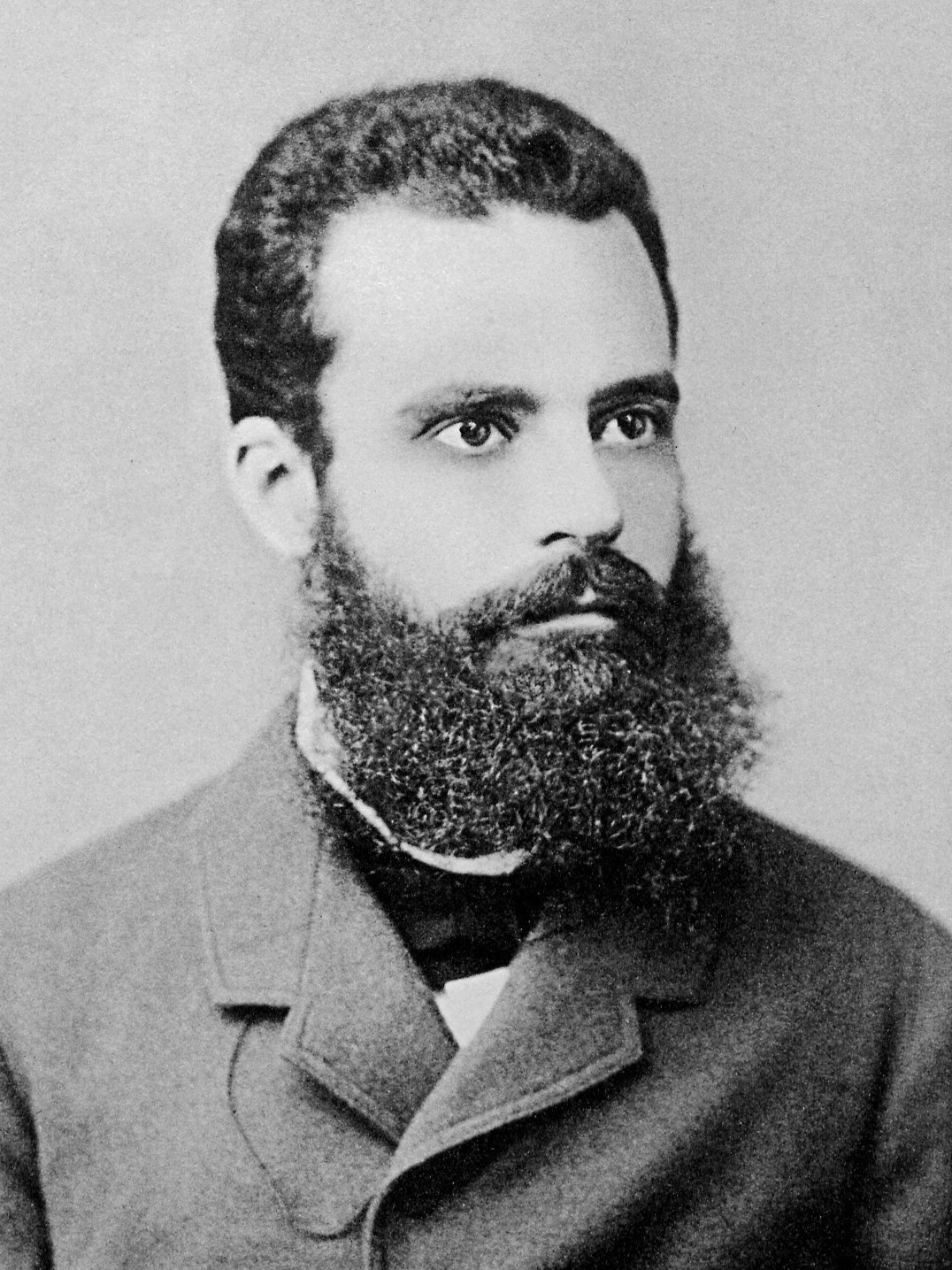
Vilfredo Pareto
1848-1923
“Consider a collectivist society which seeks to maximise the [utility] of its members. The problem divides into two parts. Firstly we have a problem of distribution: how should the goods within a society be shared between its members? And secondly, how should production be organised so that, when goods are so distributed, the members of society obtain the maximum [utility]?”
His answer is an informal precursor of the second welfare theorem:
“Having distributed goods according to the answer to the first problem, the state should allow the members of the collectivity to operate a second distribution, or operate it itself, in either case making sure that it is performed in conformity with the workings of free competition.”
Pareto, Vilfredo, 1906/1909 Manual of Political Economy
...But Can Central Planning Do It Better?
Enrico Barone
1859-1924
“[A socialist ministry of production would have to conduct a program of] experimentation on a very large scale [to determine the] economically most advantageous technical coefficients [and figure out which organizations were the most] advantageous to maintain in existence and to enlarge to obtain the collective maximum more easily, and which, on the other hand, it is best to discard as failures.”
...But Can Central Planning Do It Better?
General equilibrium theory: study of simultaneous equilibrium across all markets
Mathematically: a unique vector of market prices simultaneously establishes an equilibrium in all markets
[p1 p2 ⋮ pn ]∀pi∈R+:pi⟹qSi=qDi
- Ensure that p=MC=ACmin for all markets and maxCS+PS

The Economics of Central Planning: The Claim
The Claim:
If neoclassical economists know the mechanisms of how markets optimally allocate resources and maximize social wealth..
...why not install central planners to achieve the same optimal market outcomes without the "anarchy of production," unemployment, & problems of capitalism
...and direct the economy with a single plan for socialist ends?

The Economics of Central Planning: The Claim II
Socialists: "late-stage Capitalism has got us almost there already"
Run the entire economy as a large corporation to attain socialism
- Shareholders → "society"
- Managers → central planners
- Dividends to owners of capital → dividend to society via socialist principles

The Economics of Central Planning: The Claim III

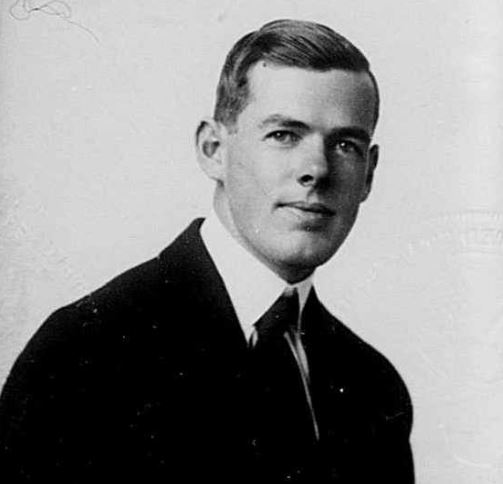
L: Adolf Berle (1895-1971) R: Gardiner Means (1896-1988)
"We now have single corporate enterprises employing hundreds of thousands of workers, having hundreds of thousands of stockholders, using billions of dollars' worth of the instruments of production, serving millions of customers, and controlled by a single management group. These are great collectives of enterprise, and a system composed of them might well be called 'collective capitalism,"
Berle, Adolf and Gardiner Means, 1932, The Modern Corporation and Private Property
The Economics of Central Planning: The Claim IV

Vladimir Lenin
(1870-1924)
"For socialism, is merely the next step forward from state-capitalist monopoly. Or, in other words, socialism is merely state-capitalist monopoly which is made to serve the interests of the whole people and has to that extent ceased to be capitalist monopoly...The objective process of development is such that it is impossible to advance from monopolies (and [WWI] has magnified their number, role and importance tenfold) without advancing toward socialism," (pp. 361-362)
Lenin, Vladimir, 1977, Collected Works, Vol. 25
Central Planning Was All the Rage Among Elites I
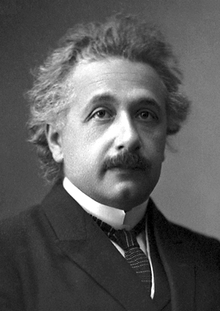
Albert Enstein
(1870-1924)
"The economic anarchy of capitalist society as it exists today is, in my opinion, the real source of the evil...I am convinced there is only one way to eliminate these grave evils, namely through the establishment of a socialist economy, accompanied by an educational system which would be oriented toward social goals. In such an economy, the means of production are owned by society itself and are utilised in a planned fashion. A planned economy, which adjusts production to the needs of the community, would distribute the work to be done among all those able to work and would guarantee a livelihood to every man, woman, and child." (pp. 311)
Einstein, Albert, 1949, "Why Socialism?", Monthly Review
Central Planning Was All the Rage Among Elites II
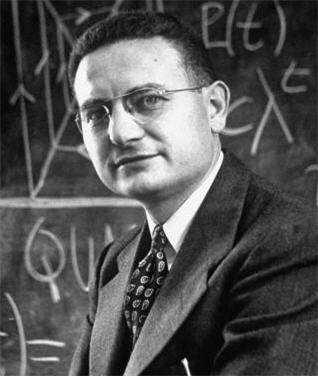
Paul A. Samuelson
(1915-2009)
Economics Nobel 1970
"[T]he Soviet economy is proof that, contrary to what many skeptics had earlier believed, a socialist command economy can function and even thrive."
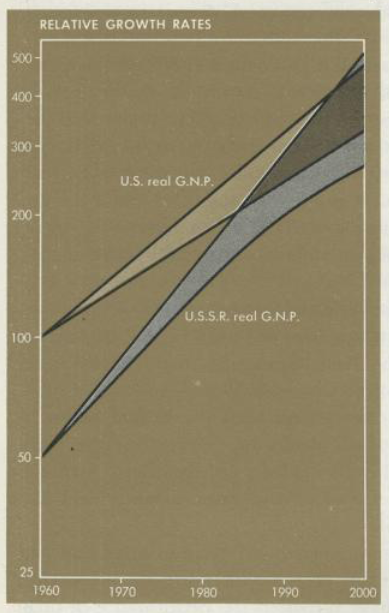
Samuelson, Paul A, 1989, Economics; Levy, David M and Sandra J Peart, 2009, "Soviet Growth & American Textbooks", manuscript
